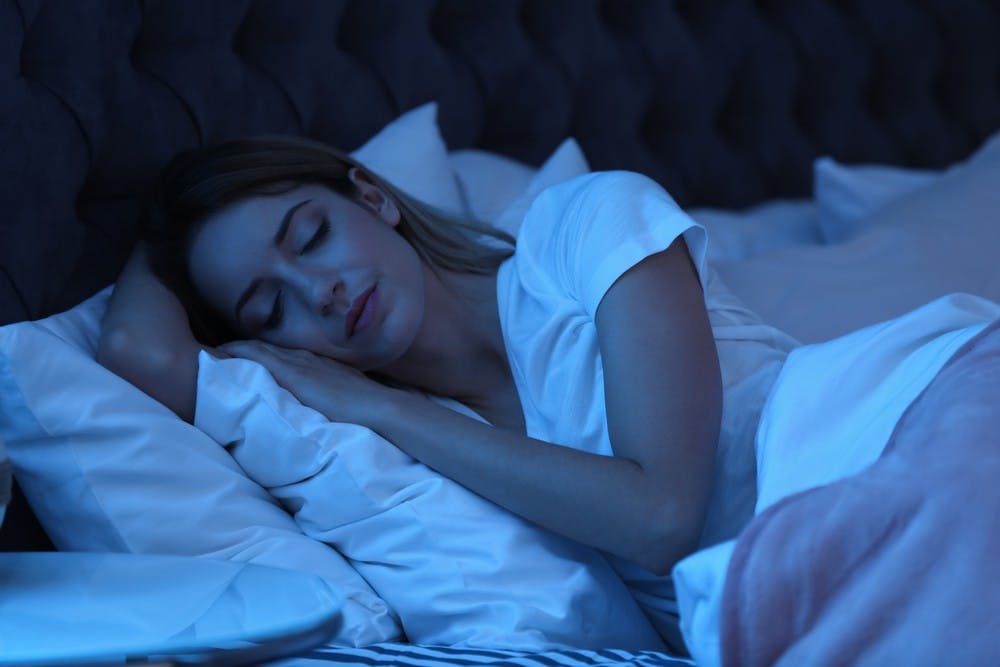Most people struggle with getting enough sleep. From the screens of the modern age to the street lights outside, many factors can keep us up all night. The natural darkness of night is not enough to make ourselves fall asleep anymore. Falling asleep has become a deliberate exercise and delicate art in the realm of self care. Whether you are looking to put an end to your insomnia or make yourself less of a night owl, there are many actions you can take to make your sleep more productively restorative.
1. Sleep Patches
You can wear a sleep patch to help yourself fall into a deeper sleep. Most sleep patches are infused with all natural essential oils that can help you fall asleep. If you wear one, you’ll be able to fall asleep faster and stay asleep for a longer time. It might even help you avoid the odd groggy morning. Also, sleep patches can come in different shapes and graphics, so if you need to get kids to go to bed, you can use a sleep patch, and you will not have to deal with any resistance.
2. Calming Patches
Similarly, calming patches might also help. Being calm can help you fall asleep, so you might consider purchasing calming patches for a less potent option. Many calming patches are optimized with a cocktail of essential oils, including Cedarwood and Lavender, two items that regulate emotions and internal activity for as many as eight hours. As with sleep patches, these can also come with cute graphics so that, if you have a kid who is too hyper, you can purchase these patches on that kid’s behalf, as well.
3. Do Not Stray From a Schedule
First, make sure you get the right amount of sleep. Too much is as bad as too little. More than eight hours may leave you feeling groggy. The recommended amount of sleep is seven to eight hours.
You must also be consistent. Get up at the same time every day, and go to bed at the same time every day, without regard to what day of the week it is. Departing from your schedule on weekends will ultimately make you feel worse. You’ll be more groggy and less energetic. This artificial consistency will only reinforce your body’s natural ability to tap into a regular sleep schedule.
In the odd event that you are unable to fall asleep, then get out of bed, and do something else for twenty minutes or until you finally feel tired. Getting up at the same time every day should mitigate the risk of not being able to fall asleep. Throwing yourself out of bed in the morning is much easier than refusing to watch one more video and going to bed against your inner child’s demands. In those twenty minutes, read, listen to music, or do some other leisurely activity that isn’t as stimulating as that one more video.
4. Do Not Nap
While you need not avoid naps entirely, you ought to be mindful of the effects an afternoon nap might have on your sleep schedule. Specifically, naps should be no longer than an hour, and you should nap early in the day. Unless you’re working a night shift or weird hours, you should avoid napping later in the day or straying from these general rules of napping.
5. Manage Eating Habits
Before going to bed, you should be neither famished nor filled to the rafters. Dinners are the biggest daily meal for many people, so make sure you have the last meal of the day a couple hours before you go to bed. Eating immediately before bed is going to make falling asleep impossible for the following hour.
What you drink is equally important. Caffeine from coffee or tea can also last for hours, interfering with sleep. While alcohol might make you fall asleep, it will wake you up at 2AM when your blood sugar plummets.
6. Create a Good Environment
Your room must be cool, quiet, and dark. Consider purchasing blackout shades or a white noise machine. Earplugs can also be effective in urban areas. Do not blast the heat because cold environments are much more conducive to a good night’s sleep. Avoid screens as you wind down for bed, and supplement that avoidance with relaxing activities like taking a bath, showering, or meditating. This environment may be the source of a good night’s sleep before that sleep begins.
7. Exercise
As long as you exercise regularly, you’ll be able to enjoy more restorative sleep, without regard to how intense your workout is. Ten sit-ups or push-ups is the only regimen you need to stick to in order to sleep better. Going outside for a walk can also be helpful for getting a lot of sun.


